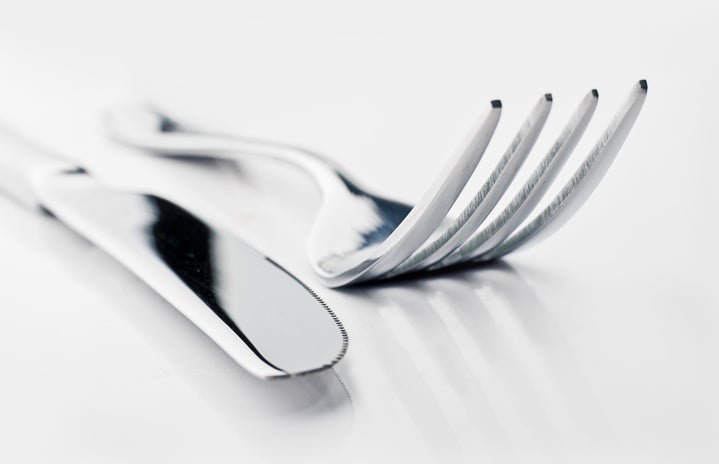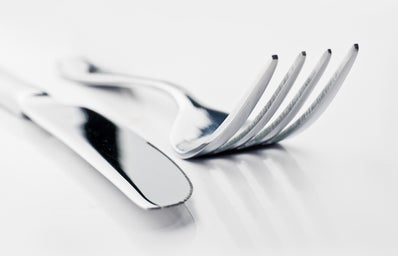CW: This article discusses disordered eating and may be triggering for those who struggled with or are struggling with any form of eating disorder or disordered eating. Please only read if you feel comfortable.
Disordered eating and eating disorders are a huge issue in our society, mostly because their behavior is so normalized in our everyday life. I cannot tell you how many times I scroll through TikTok, Instagram, etc. and see someone promoting their “healthy” lifestyle. This “healthy” lifestyle usually consists of barely 1,200 calories, not nearly enough to support a grown adult.
I have struggled with disordered eating since my junior year of high school. I have never been formally diagnosed with any eating disorder, but I definitely see patterns with how I eat and eating disorder behavior. As I look back on this, I realize how my friends and I talk about food, and it’s extremely unhealthy.
I want to point out some of the common sayings that my friends and I used to say and what I have seen in the media. You would be surprised how this language just blends into everyday conversation.

-
“Oh my god, I haven’t eaten all day!”
This phrase is usually a response to someone else describing what they have eaten on that day. This sentence seems really harmless: you are responding to someone else and proclaiming how you haven’t eaten. However, this is can be an extremely triggering sentence to someone who has struggled with disordered eating.
A person may struggle to eat three meals a day, and maybe they just got back into a healthy relationship with food. Hearing someone say this could make someone feel horrible about themselves. I cannot tell you how many times I have been so proud of myself because I ate both breakfast and lunch, only to hear this in response, which is so disheartening.
-
“I’m going to skip dinner because we’re drinking tonight!”
Alcohol is not a meal. You do not have to restrict your caloric intake because you drink heavily one night. This sentence is extremely harmful to yourself as well as to others around you.
It is stating that your caloric intake is worth more than having a fun and SAFE night of drinking. You are doing more harm to your body by skipping dinner than by being in a calorie surplus for one night.

-
“You’re eating ALL that?”
It is never okay to comment on someone else’s food choices, whether you think it may come across as a compliment or not. When I was heavily restricting my caloric intake, I remember how many “compliments” I was getting about how skinny I was.
This just promoted me to restrict more. You do not know what someone is going through, and it is best to leave insults or compliments out of their eating habits.
-
“Ugh, I used to be so skinny back then!”
I am really guilty of this one as much as everyone else. I constantly look back to when I was 15 or 16 and played three sports, and I wish I still looked like I did. The thing is I am not 15, and I am a woman.
I can never look like that again because as a woman, I carry fat and have hips. I think our patriarchal society constantly has us reminiscing on our teenage years. Women especially are constantly pressured to look almost childlike, skinny, and small.
Many people’s standards of the “perfect” body are skinny, tall, and toned. Whereas, any other body type is sometimes deemed unattractive. This is extremely dangerous because it can perpetuate Eurocentric beauty standards; in reality, all body types should be celebrated.

-
“I have to work off all the garbage I ate yesterday!”
Exercise is not meant as a punishment or a way to earn your food. Exercise is meant to help your mental and physical health. Our society puts so much emphasis on calories in and calories out that we have physically taken enjoyment away from exercise.
This sentence is also harmful to someone who struggles with disordered eating. It puts pressure on them to feel as though they should be working off their meals if it happens to be “unhealthy.”

Many of us are guilty of saying one of these phrases at least once in our lives. We owe it to ourselves and to everyone around us to be cautious about how we discuss food and our bodies because everyone is worthy of feeling beautiful and strong. We must keep in mind that not everyone has a healthy relationship with food, and we must do our best to respect that and attempt to promote a healthy lifestyle.


